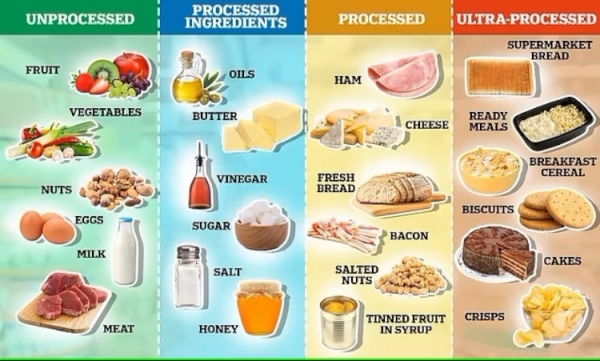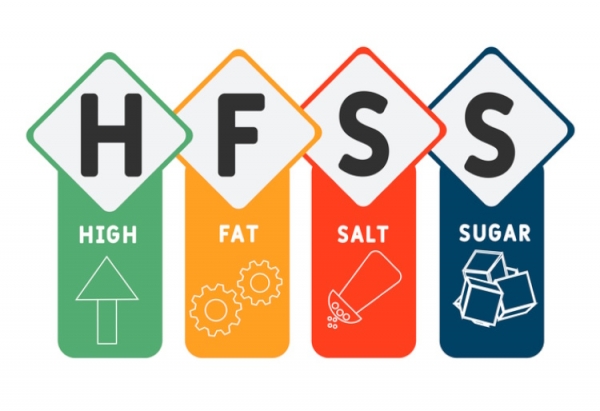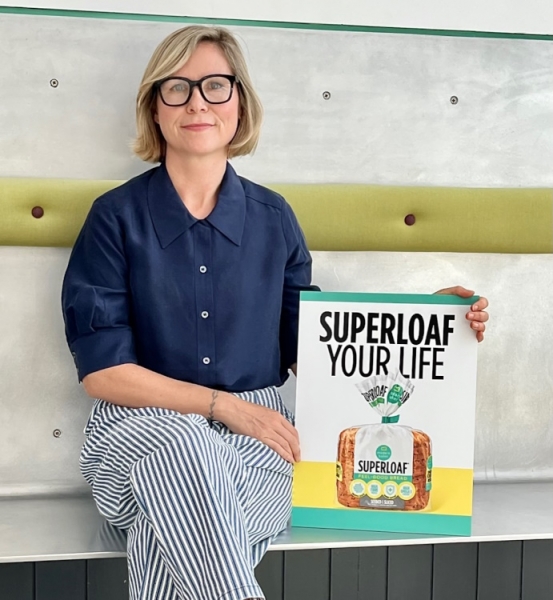UPFs have found themselves at the center of a growing storm of controversy.
Last month, a pan-European study from the EIT Food Consumer Observatory revealed 65% of Europeans believe UPF are unhealthy, while 60% consider them to be bad for the environment, linked to the perception of unnaturalness, the presence of chemicals and industrial production.
This follows a review published in the BMJ that UPFs have been linked to 32 harmful health effects, including heart disease, type 2 diabetes, cancer and mental health problems. The researchers used data from 9.9 million people, coming from food questionnaires and dietary history.
An earlier study, however, found that not all UPFs should be tarred with the same brush.
Yes, the link was most notable for animal-based UPFs and artificially and sugar-sweetened beverages, but “other subgroups such as ultra-processed breads and cereals or plant-based alternatives were not associated with risk,” said the researchers.
In fact, some brands are motivating to come up with highly processed products that are actually good for health, such as Modern Baker’s Superloaf. Coined as ‘the healthiest loaf ever made’, the loaf has uniquely shown that carb based UPFs can be re-engineered to become a vehicle for positive nutrition, or ‘food as medicine’.
After garnering six years of Innovate UK-backing to create the gut-friendly bread, the startup has now secured a three-year licencing agreement with UK manufacturing giant Hovis to “make a health-positive impact on the UK’s staple food at scale,” said Modern Baker’s cofounder Melissa Sharp.
Superloaf is made on the same high-speed machines that run the bread industry worldwide, yet unlike many other ultra processed breads, it’s packed with concentrated clean label nutrients that have been shown to slow blood glucose (and fructose) absorption and optimize gut microbiome outputs.
It could be the breakthrough the industry needs to overcome the UPF challenge.
What are UPFs?

While almost all food is processed to some extent, UPFs are on the next level, using ingredients and additives – such as high-fructose corn syrup, hydrolized proteins, thickeners, anti-foaming, gelling and glazing agents – to make processing easier and less expensive, among other benefits.
The Nova system, developed by scientists in Brazil more than a decade ago, splits more than 11,000 food items into four groups, based on the amount of processing it has gone through. One of these, termed ultra-processed foods (UPFs), is made up of packaged snacks, baked goods, sugary cereals, drinks, readymeals and many other product types formulated mostly or entirely from many types of additives that make them highly convenient (ready-to-consume, almost imperishable), highly attractive (hyperpalatable) and highly profitable (low cost ingredients, long shelf life).
Many plant-based alternatives are also categorized as UPFs as they typically contain ingredients such as protein isolates, seed oils, emulsifiers, gums and additives.
While EIT Food’s survey highlighted the extent of the UPF vs health concerns among Europeans, a survey conducted by OnePoll on behalf of health and wellness app Yuka found 70% of American are also troubled. Worse still, 77% believe manufacturers and food regulators place ‘corporate greed’ ahead of consumer health.
In fact, results found the majority of those surveyed perceive the financial interests of food manufacturers (36%) as a greater priority for US food regulators compared to consumer health protection (22%), supply chain safety (21%) and transparency assurance (12%).
Only 14% of respondents feel protected by current US regulations, with 55% perceiving food regulations to be stricter in the EU, reported Yuka. (EIT Foods’ survey, meanwhile, found a slightly higher confidence among Europeans (60%) who trust that UPFs are regulated well enough by authorities to ensure these foods are safe and healthy in the long term).
According to Yuka, 77% of Americans believe food manufacturers should be held accountable for the health impact their products have on consumers.
Saying that, Yuka’s survey found 62% feel confident in being able to identify products with excessive additives or controversial ingredients and 75% believe their purchasing habits can drive positive change in what manufacturers put in food products.
While 70% are concerned about UPFs and their health, only 20% reported to intentionally avoid them. 19% Gen Zers admitted to eating them ‘all the time’.
Only 30% of those surveyed found manufacturers to be transparent with their product labeling. And while 95% overall found labels to be understandable, this was more evident among younger consumers. Yuka’s survey found Gen Zers (65%) and Millennials (58%) had a better grasp of gaining insight from labels that Boomers (31%) and the Silent Generation (33%).
“The Yuka project was born with the mission of helping everyday people become more informed and educated about what they consume,” said Julie Chapon, CEO and cofounder of Yuka.
“Our aim is to foster a community of consumers who play an active role in driving positive change. It’s heartening to witness the American public embrace this empowerment, particularly among Gen Zers, with a significant majority (73%) recognizing the potential of their voices to transform a food system dominated by overly processed options and corporate greed into one that focuses on health-forward choices.”
On the other hand, EIT Food’s study found a lack of awareness and understanding of UPFs are preventing Europeans from making informed, healthy choices.
According to the knowledge and innovation community, as well as convenience, price and taste, a lack of understanding as to how foods are processed is contributing to consumers’ uncertainty. Furthermore, many are confused about the extent to which their food is processed. For example, while six in 10 consumers identified energy drinks as ultra-processed, only 34% correctly identified vegan cheese and chocolate bars (22%) as being ultra-processed products.
Furthermore, while 84% of people profess to consume UPFs less than five times a week, given the confusion on levels of processing, this is very likely an underestimation by consumers themselves, contends EIT Food.
“The latest findings from the EIT Food Consumer Observatory demonstrate a clear knowledge gap in how consumers identify, understand and engage with how their food is produced,” said Prof Klaus Grunert, a Department of Management professor at Denmark’s Aarhus University and director of the EIT Food Consumer Observatory.
“Giving consumers clearer labeling, guidance and education could help them to better understand and engage with this issue, but it’s also important that concerns over processed food are considered in the wider context of people’s diets and wellbeing. It’s also crucial that we continue to bolster our understanding and agreement of how we classify, evaluate and label foods, so that our advice to consumers is informed by the latest science.”
There’s more than just UPFs to consider

Meanwhile, the UK’s Food and Drink Federation (FDF) said it’s more important for shoppers to focus on levels of consumption of fat, salt and sugar rather than just UPFs.
“Like others, we are concerned by the high incidence of poor diets and obesity in the UK, and we know our industry has a role to play in helping shoppers make more balanced choices and lead healthier lives,” an FDF spokesperson said.
“However, we are concerned that the term ‘ultra-processed’ is confusing people as they try to make the right choices for themselves and their families. Our view is that it’s more important to help people to understand where they are consuming too much food that’s high in fat, salt and sugar, and not enough fruit, vegetables and fibre, rather than focusing on processing in itself.
“To that end, food and drink companies have worked hard over a number of years to adapt the recipes of our products to make them healthier and to reduce portion sizes, and we continue to do so.”
While experts have found an increased risk of poorer health if people consumed lots of artificially sweetened or sugary drinks, or animal based UPFs such as processed meat, researchers from the International Agency for Research on Cancer (IARC) said there was no link between an increased disease risk and ultra-processed breads, cereals, desserts and savory snacks.
Heinz Freisling, coauthor and study lead at IARC, said the 2023 study – which included 266,666 participants (60% women) from seven European countries and published in The Lancet – “emphasizes that it is not necessary to completely avoid ultra-processed foods; rather, their consumption should be limited and preference be given to fresh or minimally processed foods.”
Steve Burgess, GM, Europe for TNA Solutions, concurs.
In January, he told Bakery&Snacks that, like high-sugar products before them, UPFs have become industry’s latest ‘bogeyman’.
“The general consensus is the more the product is processed, the less nutritious it is. But that doesn’t have to be so,” he said.
“The food industry has a responsibility to help consumers make healthier diet choices, but this doesn’t mean a complete rejection of processed foods. From keeping shelf life stable to making essential nutrition accessible and affordable for all, there are many ways processing can actually make products healthier and give consumers more control.”
He believes industry does need to be more transparent.
“By clearly and honestly communicating these benefits – both in terms of marketing and labeling – and taking steps to improve the nutritional credentials of their products, manufacturers can break down the myths that make consumer suspicious of UPFs,” he told this site.
Feeling the pressure to innovate

With numerous, transformative shifts coalescing across industry, brands are no doubt feeling the pressure to innovate, so the uptake by Hovis to put its might behind the Superloaf is a ray of sunshine for the sector.
Hovis has worked with Modern Baker since April 2023 focusing on product development, manufacture and distribution of the gut-healthy loaf and the Super Bakery franchise across the UK and Ireland.
An extended three-year licensing agreement is a natural progression for both to develop new bread recipes and launch them at scale.
“Our brand has been at the forefront of new innovation for the past 140 years and we see strong potential for continual growth and the development of new variants with Modern Baker,” said Jon Jenkins, CEO of Hovis.
“We know that today’s consumer is increasingly interested in health and gut health and we look forward to working with Modern Baker to grow the current range and innovate with new fantastic tasting products.”
Added Sharp, “Hovis is a brand synonymous with quality, not to mention a national treasure and therefore the obvious partner for our ambition to place the UK at the center of nutrition innovation.”
Studies:
Lane, MM, Gamage E, Du S, et al. Ultra-processed food exposure and adverse health outcomes: umbrella review of epidemiological meta-analyses. BMJ 2024;384:e077310 doi.org/10.1136/bmj-2023-077310
Cordova R, Viallon V, Fontvielle E, et al. Consumption of ultra-processed foods and risk of multimorbidity of cancer and cardiometabolic diseases: a multinational cohort study. The Lancet Regional Health, Europe, Vol 35, 100881, December 2023. doi.org/10.1016/j.lanepe.2023.100771
EIT Food’s UPF study combined a survey of European consumers alongside a follow-up qualitative study. The quantitative survey was conducted by Ipsos conducted between 23 August and 5 September 2023, polling 9,787 Europeans across 17 countries and nationally representative in terms of age, gender and region. Qualitative data was collected in the Citizen Participation Forum, an online community with around 300 members from 17 countries. 89 members took part in activities ranging from discussions to polls and questionnaires, photo-challenges and journal entries.
